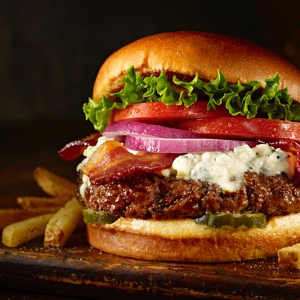Why Cheating Is Okay

It's a concept so appealing, it seems downright dangerous. But the theory of cheat days and reward meals—where you break from watching what you eat to indulge in delicious but decidedly less wholesome dishes—is one of the easiest and certainly the most fun ways to lose weight and stay in shape. After all, trying to cut calories and carbs all the time takes its toll. Not just on your enjoyment but on your body.
The human body is a masterful adapter. It gets used to the shortfall in calories so it starts burning fewer of them. But a temporary break from your diet confuses the body and interrupts such a slowdown. And there are more scientific benefits to cheating. Research published in the International Journal of Obesity found that splurging on carbs increases the hormones that boost your metabolism and muscle growth while reving up your body's ability to burn calories. What's more, when nothing's "off limits," you're more likely to stick to a healthy lifestyle. So go ahead, treat yourself. Just keep these tips in mind.
Plan
Your Cheat
The goal is to eat clean for the better part of your week, stay active and then reward yourself by taking the shackles off your menu. The weekend is the perfect time to splurge, when you're going on dates or meeting up with friends. If you're fearful that a Friday night splurge could snowball into a weekend-long bender, plan your cheat day for Sunday. It's easy to restart your healthy routine Monday morning.
Moderation
Still Matters
Yes, you're going to indulge in less than healthy foods but "it's not a license to binge," warns Jim White of the Academy of Nutrition and Dietetics. "We're not trying to get drunk on food." Think three or four pieces of pizza, not the whole pie. Don't set yourself back by overindulging or pounding empty calories in alcohol and overly processed foods.
Know
Your Body
There's some trial and error involved with managing reward meals. When you are no longer regularly downing a lot of fat, sugar and heavy starches, that epic cheeseburger with a side of fries and a milkshake can throw you for a loop. Your gut enzymes, which have been somewhat dormant, go into overdrive, says Pam Peeke, MD and author of The Hunger Fix. "It's a hardship on the body and trust me, you'll pay for it with diarrhea, upset stomach and bloating."